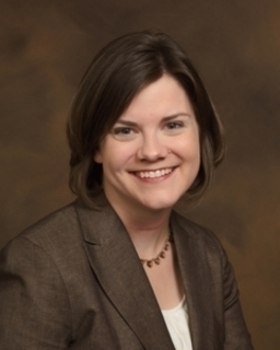This text-based course is a transcript of the live seminar, “Normal Aging and Hearing: An Update for SLPs,” presented by Nicole Marrone, PhD, CCC-A.
>> Nicole Marrone: I would like to start today by reflecting on a brief dialog. This is an interaction (Yorgason, Piercy, & Piercy, 2007) that gives you a small window on what might be a larger issue with how hearing impacts communication. In this example, you are walking through your busy reception area with your client and their spouse.
Husband: “Did you validate the parking?”
Wife: “What was that, dear?”
Husband: “Did you validate the parking?”
Wife: “What?”
Husband: “I said, did you validate the parking?”
Wife: “You want me to do what?”
Husband: “Oh never mind! It’s not that important.”
Make a note for yourself on how you might respond to this kind of exchange if you experience it. This is a moment that might go unnoticed or unaddressed in the context of a busy clinical day, but I think it touches upon what could be the tip of the iceberg for how hearing is affecting communication in relationships. There is a struggle to hear. There is fatigue and frustration. Then there is quitting and giving up. When we think of aging and hearing we are not often thinking about what is best about relationships, but about communication breakdowns. Today we will talk about how hearing abilities impact communication and quality of life at every age, and we will incorporate a wellness view that looks toward finding the best in growing old together.
Susceptibility
My basic premise for this discussion is that speech-language pathologists have opportunities to promote hearing health and wellness with their older clients. What I hope to explain is that the normal aging process presents a more complex picture for hearing than many people realize. There is increased susceptibility to changes in auditory functions and a stigma about hearing loss in aging, with a great deal of diversity and experience. There is also capacity for resilience and a “living well with hearing loss approach” represents a way to cope and manage these changes in hearing and communication to improve quality of life.
To focus on the prickly aspects of aging and hearing, the main message is that in older adulthood, individuals are at a higher risk for experiencing speech communication difficulties with and without changes in hearing sensitivity (Humes et al., 2012; AAA task force review) that meet the criteria for defining hearing loss. The second main point is that age-related hearing loss is often neglected and under-managed which can negatively impact quality of life (Li-Korotky, 2012).
Promoting Resilience
In terms of promoting resilience and wellness for aging and hearing, there are highly effective communication strategies that can be tailored to the individual to maximize their communication and minimize the effects of age-related changes in hearing. Family support and community engagement make a real difference in people’s lives and the use of adaptive technology is possible at every age. There is ongoing research in the audiology community to identify ways in which technology might be optimized for each listener.
My presentation is divided into three sections. First I will go over some definitions, and then some age-related changes in hearing function. I will then close by discussing opportunities to promote resilience and living well with hearing loss.

